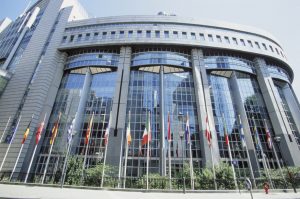 On March 24, 2022, the EU Parliament and Council negotiators agreed on the wording of new EU rules to limit the market power of big online platforms. The EU Digital Markets Act (DMA) will prohibit certain practices used by large platforms acting as “gatekeepers” and enable the EU to carry out market investigations and sanction non-compliant behavior.
On March 24, 2022, the EU Parliament and Council negotiators agreed on the wording of new EU rules to limit the market power of big online platforms. The EU Digital Markets Act (DMA) will prohibit certain practices used by large platforms acting as “gatekeepers” and enable the EU to carry out market investigations and sanction non-compliant behavior.
Who are the gatekeepers?
The DMA targets large companies providing “core platform services” which the EU believes are most prone to unfair business practices. These include (amongst others) online intermediation services, search engines, social networks, video-sharing services, operating systems, cloud computing and online advertising services.
To be designated as “gatekeepers,” these companies must have a market capitalization of at least €75 billion or an annual turnover of €7.5 billion, and also provide certain services which have at least 45 million monthly end users in the EU and 10,000 annual business users.
What does the DMA do?
Examples of key affirmative obligations for gatekeepers include:
- allowing third parties to interoperate with their own services in certain specific situations (meaning large messaging services will have to open up and interoperate with smaller messaging platforms);
- allowing business users to access the data that they generate from their use of the gatekeeper’s platform;
- allowing end users to uninstall any preinstalled software applications on their platform, unless those applications are essential to their functioning;
- providing companies advertising on their platform with more information about the price paid for the advertising services run by the platform; and
- allowing their business users to offer their products and services to customers outside the gatekeeper’s platform.
Examples of key restrictions on gatekeepers include preventing them from:
- treating services and products offered by the gatekeeper itself more favorably in ranking than similar services or products offered by third parties on the gatekeeper’s platform;
- preventing consumers from linking up to businesses outside the gatekeeper’s platform; and
- combining personal data for targeted advertising without explicit consent.
The DMA will also give the Commission the power to block certain acquisitions by gatekeepers of other companies (e.g., a tech giant buying a small startup) where such takeovers might not trigger the thresholds under existing competition law.
If a gatekeeper does not comply with the rules, the Commission can impose fines of up to 10% of its total worldwide turnover in the preceding financial year, and 20% in case of repeated infringements. In case of systematic infringements, the Commission may ban them from acquiring other companies for a certain time.
Impact on businesses
The DMA represents a sizable shift in the European regulatory landscape for Big Tech. As with the impact on privacy laws around the world following the implementation of Europe’s flagship privacy law, the GDPR, the DMA may serve as a blueprint for similar legislation in other jurisdictions, including the United States.
While the scope of the DMA is relatively narrow (it is designed to capture only the largest tech platforms), smaller businesses may expect to benefit from the measures which favor transparency and competition. They should also gain more rights and bargaining power in their dealings with Big Tech.
What next?
The approved legal text has not yet been published and will be subject to technical and linguistic review before it is finally approved by both the Parliament and Council. Once this process is completed, the DMA will come into force 20 days after its publication in the EU Official Journal and the rules will apply six months thereafter.
RELATED ARTICLES
As European Regulators Take Use of Cookies More Seriously, Here Are the Basics for Compliance
 Internet & Social Media Law Blog
Internet & Social Media Law Blog


